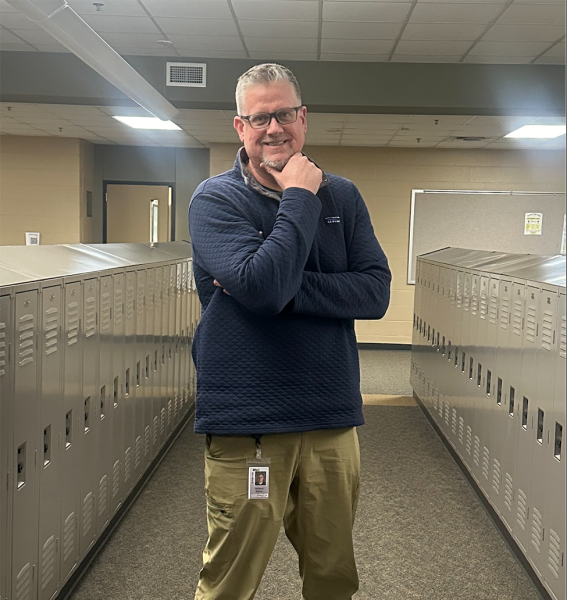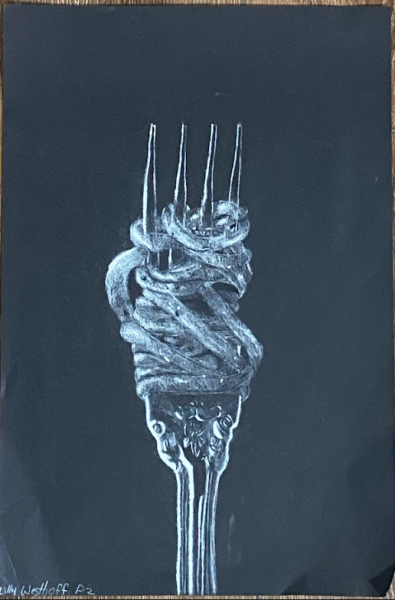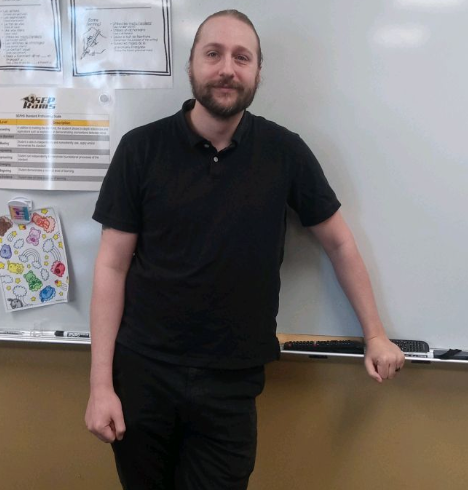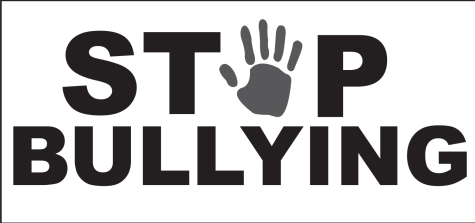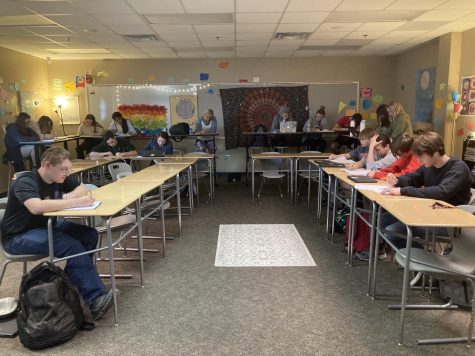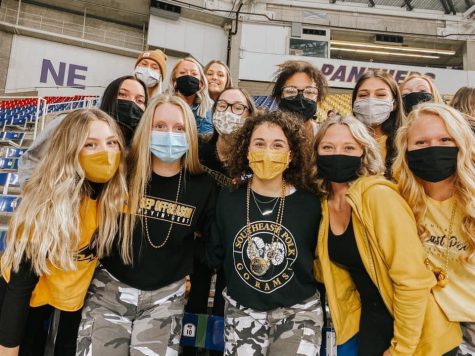Current Event Misconceptions
The number of events that happen globally can be somewhat overwhelming for a student to grasp. It’s important for students to fully understand the news, otherwise, misconceptions about current events get spread around making it difficult to know what is the truth or what is just a version of it. Being informed not only makes students feel more in touch with our world ,but also allows them the opportunity to get involved and have an impact on these events and maybe even make news themselves.
Social studies teacher Kyle Lehman thinks that it’s essential for students to stay informed and involved with the current events of our world.
“I had a professor once that talked about using the word history and breaking it down. When you separate history, you get ‘his story’… We need to understand these events in order to make our future better and brighter. Students are the next up and coming generation and at some point, it will be them leading the charge. They need to know what that entails,” said Lehman.
Students have the ability to play a pivotal role in events happening now that could affect us all in the future. Knowing the power that they hold, and even more importantly how to use it, is what will change the world one day.
Here’s a summary of all the events flooding our social media in the past few weeks to help clear up the misconceptions and understand how they could affect students. All information is current as of January 27, 2020.
Iran:
On January 3, 2020, the United States announced that it had killed Iranian war General, Qassem Soleimani during an airstrike. Although this event made big news across the world, this is not the first time the U.S. and Iran have had rising tensions.
“Iran and the United States have had a rocky relationship since the late 1970s when their U.S.-backed leader was overthrown. Tensions cooled during the Obama Administration and a peace deal was created focusing on Iran’s nuclear program. Once President Trump was elected, he has spoken out about disliking the deal and tensions have flared since,” said Lehman.
Iran has retaliated but none of their attacks have been detrimental to the U.S. According to NBC News, “Iran retaliated for the killing of Gen. Qassem Soleimani by firing more than a dozen ballistic missiles at two Iraqi air bases housing U.S. forces.”
Iranian Foreign Minister Mohammad Javad Zarif said Iran did not “seek escalation or war but will defend ourselves against any aggression.”
When all of this news broke, young people across the country started to freak out. Talk of World War 3 and the possibility of being drafted were all students were focused on after the tensions surfaced on their Twitter feeds, but this concern is not something they should be too worried about.
“The likelihood of World War 3 is very small. I think in the long run, we will send troops in the Middle East to once again stabilize the region until tensions calm. Overall, I don’t think that Iran will take this issue too far as if it did go to war, nuclear or not, the United States’ power is unmatched compared to them,” said Lehman.
The greatest effect this event will have on students is the uncertainty and confusion it has caused many to have. The best they can do now is to make sure they stay informed.
“Read. Watch the news. Follow news sites on twitter. Talk with friends and family. Get involved,” said Lehman.
Impeachment:
President Donald Trump’s impeachment may seem like old news by now, but this is an issue that will continue to be seen in the media, so it’s important for students to stay informed with the correct information.
On September 24, 2019, Speaker of the House Nancy Pelosi announced a formal impeachment inquiry into Donald Trump. Impeachment is the process in which a government official is charged with crimes they have allegedly committed. In Trump’s case, he is being charged with obstruction of Congress and abuse of power.
These charges were brought upon the president after an unnamed official (a whistleblower) came forward expressing concerns about a call Trump had with Ukrainian President Volodymyr Zelensky. According to BBC News, “A rough transcript of the call revealed that Mr. Trump had urged President Zelensky to investigate discredited allegations against Joe and Hunter Biden.”
Trump was accused of withholding millions of dollars of military aid from Ukraine as a way to get them to investigate Joe Biden’s son, Hunter. In the weeks before the announcement of the impeachment articles, the House called upon dozens of witnesses and experts to present and debate on the evidence against the president.
On December 18, 2019, the House of Representatives voted on the proposed articles of impeachment. According to The New York Times, only one article needs to be passed to impeach Trump, but in this case, both were passed moving the impeachment process onto the Senate trial.
The Senate trial started on January 22 with opening arguments from both political parties. Both sides will now present evidence and witnesses proving or refuting Trump’s removal. After both sides have had the chance to present their case, the Senate will vote on both of the charges.
In order for Trump to be removed from office, the Senate would need to receive a two-thirds vote on at least one of the articles. However, many experts believe that the removal of Trump is unlikely because the Senate is majority Republicans. It is not clear as to when the trial will wrap up, but the process is expected to be completed within the upcoming weeks.
This process and its predicted outcome has left a lot of students wondering what will happen if Trump isn’t removed from office and what the purpose of impeachment was in the first place. This is a valid question, but it’s a question that doesn’t have an easy answer. Trump’s impeachment just gives him a bad reputation, but that doesn’t mean that he won’t be re-elected. In fact, it’s completely possible that he will get re-elected in the upcoming election if the Senate finds that he’s not guilty of the charges against him. If anything, the impeachment shows how powerful our democracy can be.
U.S. History teacher Christopher Starostka says the impeachment highlights the differing opinions of politicians within our country.
“It just shows how divisive we are. There are clear lines, politically, of which side people are on. It is difficult to get things accomplished if there is no compromise and everyone is out to get the other side,” said Starostka.
Trump’s impeachment serves as a lesson to students. One that shows the power of their opinions and voices. The House’s choice to go forward with the impeachment shows that if people come together on an issue change can be made.
“[Students] have a voice and a vote, eventually, so use it. Never back down from what you believe,” said Starostka.
Iowa Caucus:
On February 3, 2020, the first Democratic caucus of the 2020 election will take place all across the state of Iowa. The Iowa caucus is a chance for voters to come together to discuss their primary candidate for the upcoming presidential election.
According to PBS.org, “[Iowa] caucuses not only allow activists and voters to make a case for their preferred candidate, but also to talk about issues that could be incorporated into the state party platform.”
It’s important for students to note that the caucuses are not an election, but rather a meeting for supporters of a given candidate. The caucuses give the nation an insight into who the primary candidates might be in the election, and Iowa just happens to be the first to cast their opinions.Social Studies teacher Andrew Soelter explains that the role that the caucus plays in Iowa, but also on a national scale.
“The first major role that the Iowa caucuses play is for the state of Iowa to have an extremely important voice in national politics that it otherwise surely would not have due to its small population and agricultural roots,” said Soelter.
As for how students can get involved, there are only a few simple requirements. Students must be 18 years of age on or before the election on November 3, 2020, registered to vote and registered to the party in which they wish to attend a caucus.
“They are held all over Iowa in small gatherings of a few Iowans to a few hundred Iowans at over 1000 locations in Iowa called precincts,” said Soelter.
Even though caucus turnout isn’t always the highest, students should take the time to attend an event near them.
“This is a way to have a direct voice on who takes office and what policies are enacted on all levels of government. Getting involved may also motivate some [students] to pursue government office at any and all levels of government,” said Soelter.


